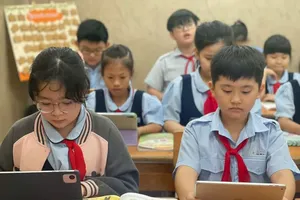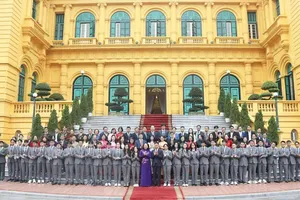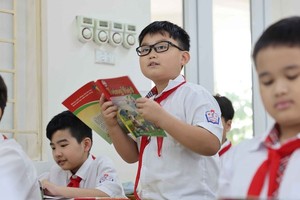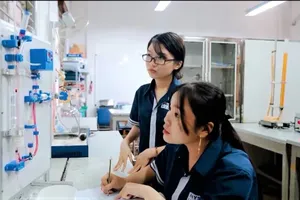
The draft law has recently been submitted to the National Assembly Standing Committee. So far, there are many various opinions on it.
According to Hoang Ngoc Vinh, Former Director of Vocational Education Department under the Ministry of Education and Training, tuition fee exemptions for instructors' children are a really humanitarian policy. This idea is a tribute and recognition of the great contributions of teachers in the education profession and building the country's future generations. However, before this policy is enacted into law, the following implications must be examined.
The primary concern is the financial strain it places on the state budget. Preliminary estimates indicate that exempting tuition fees for the children of teachers, from kindergarten through university, would incur an annual cost of approximately VND9,212 billion. It is important to note that this figure may not encompass all learners and formats.
The proposal was presented amid existing pressures on the state budget due to reform initiatives and various social priorities, allocating thousands of billions of Vietnamese dong annually to this specific group could significantly diminish investment in other critical sectors, such as healthcare, social security, and infrastructure development.
This may lead to an imbalance in resource distribution and potentially foster discontent among other professional groups within society. Following is that it will create a lack of harmony with other professions. This policy will raise a big question about fairness, when it only focuses on giving preferential treatment to teachers' children, while staff in other professions such as health, security, national defense, and even non-public professions that contribute greatly to society will also require similar preferential policies for their children.
Moreover, teachers are not the only profession that is under a lot of pressure and difficulty. Doctors, nurses, firefighters, soldiers on borders, islands and many people working in other industries also face great challenges at work.
The proposal plays a role in generating conflicts with the policy aimed at socializing education. The tuition-free initiative is exclusively applicable to the public education system, which may result in a significant transfer of teachers' children from private schools to public schools in order to access these benefits. This situation not only exacerbates the burden on the public system, particularly in major urban centers, but also has impacts for the growth of private educational institutions.
In addition, the potential for policy misuse emerges in the absence of clear oversight and regulation. For instance, the verification of legally adopted children may be compromised through the alteration of documents or the creation of fraudulent records. Additionally, this policy could introduce vulnerabilities related to joint training initiatives, extensive learning opportunities, and the extension of free study periods, ultimately resulting in the misallocation of public resources.
In contrast, the drafting committee should prioritize housing assistance for educators. A significant challenge faced by many teachers today is the lack of secure living conditions, particularly in rural and remote regions. The government might consider implementing housing support policies or offering favorable loans for teachers to purchase homes. Such measures would not only enhance the quality of life for educators but also foster an environment conducive to their work, especially for newly graduated teachers.
Finally, comprehensive health care support for teachers is needed. The government can implement comprehensive health care programs for teachers, including health insurance, regular health check-ups, and treatment support at quality medical facilities. This not only helps ensure the health of teachers, but also serves as a form of encouragement and recognition for their dedication.
Last but not least, priority can be given to support for teachers' families in difficult circumstances, or specific criteria can be set to classify beneficiaries. In addition, other forms of support such as scholarships, educational cost support, or preferential admission for teachers' children are also alternatives that can be considered.
For instance, the government can consider establishing a social fund to support teachers in difficult living circumstances, helping them improve their living conditions, working conditions, and travel in areas with difficult traffic.
In the current context, an expensive policy can be considered inappropriate. Therefore, the Government needs to consider and make decisions, based on comprehensive and complete assessment to bring a fair and effective welfare system for teachers while the sustainable development of education can still maintain.
























